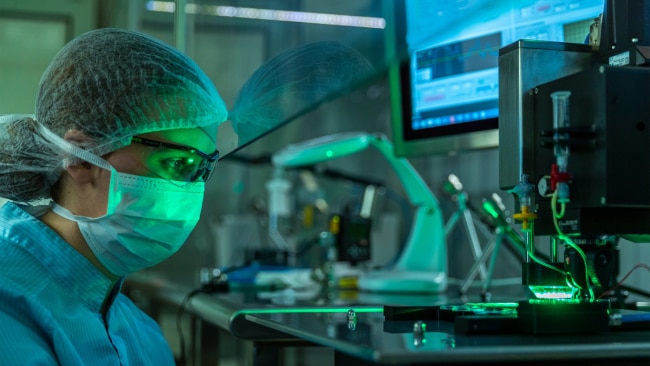Working 65 hours a week good for young doctors, college says
Young doctors should work up to 65 hours a week for their professional development despite the risks, says college

Young doctors should work up to 65 hours a week for their professional development says the Royal Australasian College of Surgeons, despite evidence they are then most at risk of making mistakes because of fatigue.
Amid an ongoing debate over doctor welfare, the college has told a parliamentary committee inquiry in South Australia that restricting trainees to clinical practice of 38 hours a week would undermine their development.
“RACS believes a 55-65 hour working week, spread across a seven-day period with sufficient uninterrupted breaks during that time, is appropriate for trainees to gain the knowledge and experience required by the training program,” its submission states.
Acknowledging the need for fatigue-minimisation practices and safe rostering, the college declared “the economic realities of providing round-the-clock cover mean that workplace fatigue will always be a challenge for the medical workforce”.
“While there are strategies that can be taken to reduce fatigue, it is important that these strategies are carefully considered to ensure that they do not inadvertently undermine patient safety and surgical training,” its submission says.
A previous college review found limited evidence that sleep deprivation impaired clinical performance — broader studies have shown that being awake for 24 hours is akin to having a blood alcohol concentration of 0.10 per cent — but that “surgical residents with less training and experience appeared to be more affected than more senior residents”.
Yumiko Kadota this week gave an account of her time as a plastic and reconstructive surgery registrar at a Sydney hospital last year. In a 4000-word blog, she chronicled her physical and mental deterioration as a result of working long hours — up to 140 hours a fortnight at the hospital but also on call — with little support from senior staff.
“On the 1st of June, I resigned,” Dr Kadota wrote. “It wasn’t OK anymore. I was physically alive, but spiritually broken. At lunch time, I begged the (head of department) if I could go home. The answer, as always, was no. ‘Just hang in there.’ I felt like I had already ‘hung in there’ for 3 months.
“The 1st of June was my 24th consecutive day of work, 19 of which were 24-hour on-call days. I knew what it would mean to resign — I would be blacklisted and never get a job in plastic surgery again in Sydney. But I couldn’t keep going. I crashed my car on my way home.”
In its submission, the college — which has previously been forced to respond to concerns over bullying and sexism — reiterated that its handling of complaints was under review. “In relation to surgery, there is little doubt there is a perception among trainees and junior medical doctors that complaining can damage a career,” it says.
“Despite explicit professional values being taught, often these seem to be overlooked, and there is a perceived disconnect between organisations’ stated values and their responses in individual cases of unacceptable behaviour.”
Dr Kadota said yesterday she was taking a break from social media.


